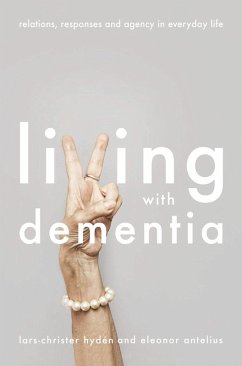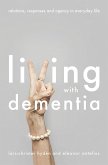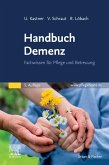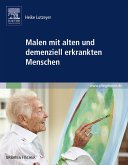Traditionally, dementia has been defined primarily in terms of loss: loss of cognitive and communicative competencies, loss of identity, loss of personal relationships. People living with dementia have been portrayed as increasingly dependent on others, with their loved ones seen more as care givers than as spouses, children and relatives. However, in the last two decades this view of the person living with dementia as an 'empty vessel' has been increasingly challenged, and the focus has shifted from one of care to one of helping people to live with dementia.
With contributions from an international range of expert authors, Living with Dementia strongly advocates this new perspective through in-depth discussion of what people with dementia and their loved ones can do, and how they can actively make use of remaining resources. Topics covered include:
- How to involve people with dementia in collaborative activities in the home, and the benefits this has on their cognitive and communicative abilities.
- Ways in which identity can be presented and preserved through storytelling, and the impact on identity of moving from home into residential care.
- The benefits of a 'citizenship' approach to dementia: of recognising that a person living with dementia is an active agent, with the right to self-determination and the ability to exert power over their own lives.
This important new contribution to the dementia debate is truly enlightening reading for students across the full range of health and social care disciplines, and offers a fresh perspective to existing practitioners and those who care for people with dementia.
With contributions from an international range of expert authors, Living with Dementia strongly advocates this new perspective through in-depth discussion of what people with dementia and their loved ones can do, and how they can actively make use of remaining resources. Topics covered include:
- How to involve people with dementia in collaborative activities in the home, and the benefits this has on their cognitive and communicative abilities.
- Ways in which identity can be presented and preserved through storytelling, and the impact on identity of moving from home into residential care.
- The benefits of a 'citizenship' approach to dementia: of recognising that a person living with dementia is an active agent, with the right to self-determination and the ability to exert power over their own lives.
This important new contribution to the dementia debate is truly enlightening reading for students across the full range of health and social care disciplines, and offers a fresh perspective to existing practitioners and those who care for people with dementia.









